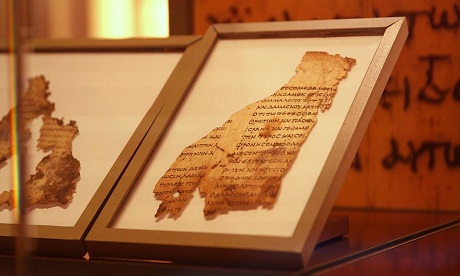Five of the Dead Sea scrolls on display at the Washington, DC-based Museum of the Bible are forgeries, experts say.
Until the forgeries were exposed, the scroll fragments were considered among the most valuable and historically significant items in the museum’s collection.
The museum says a German testing company has concluded the fragments on display show “characteristics inconsistent with an ancient origin.”
They will therefore no longer be on display at the museum.
“Though we had hoped the testing would render different results, this is an opportunity to educate the public on the importance of verifying the authenticity of rare biblical artifacts, the elaborate testing process undertaken and our commitment to transparency,” says Jeffrey Kloha, chief curatorial officer for Museum of the Bible.
The five scrolls represent a major proportion of the museum’s 16-piece collection of Dead Sea scrolls.
Doubts about their authenticity were first raised two years ago by scholars in “Brill”, which is an academic journal.
Since then, Kipp Davis of Trinity Western University has argued that at least seven of the scrolls were fake, based on the language used in the fragments and other textual evidence.
The announcement of the forgery comes after years of controversy and criticism over the museum’s approach to scholarship.
In 2017 the museum’s owner, craft store chain Hobby Lobby, was forced to return 3,800 ancient artifacts to Iraq. This was after the Department of Justice concluded that the company had acquired them illegally and had them shipped to corporate headquarters without sufficiently documenting their provenance.
To follow the correct process is important, partly to avoid acquiring forgeries, but also because illegal antiquities deals, particularly in the Middle East, can provide a major source of funds for international terrorism.
Source
- Smithsonion
- Vox
- Image: CNN
